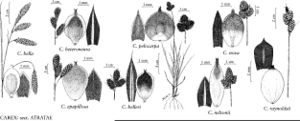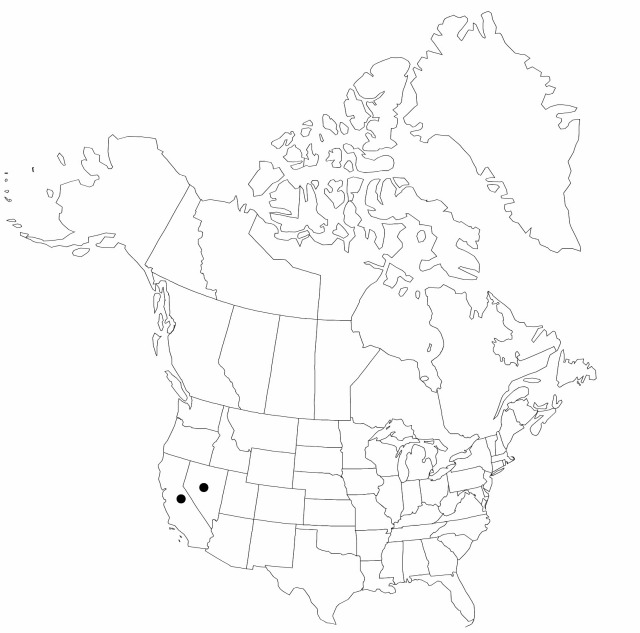Carex helleri
Erythea 8: 70, fig. 38. 1922.
Plants densely cespitose. Culms 5–30 cm, proximally scabrous. Leaves 2–3 mm wide. Inflorescences: proximal bracts shorter than or exceeding inflorescences; spikes overlapping, erect, elongate, sessile or short-pendunculate, contiguous, forming dense terminal cluster or separate, 10–20 × 5–7 mm; lateral 2–3 spikes pistillate; terminal spike gynecandrous. Pistillate scales dark-brown or black to margins, lanceolate, 1–2 times as long as and narrower than perigynia, midvein lighter colored than body, conspicuous, frequently raised, prominent, apex acute or acuminate, mucronate. Perigynia ascending, dark-brown or purple-black with green or yellowish-brown margins, veinless, elliptic or obovate, 2.5–3 × 2–3 mm, apex gradually or abruptly beaked, distal margins smooth; beak 0.25–0.3 mm, bidentate, smooth. Achenes filling proximal 1/2 or less of perigynia.
Phenology: Fruiting Jul–Aug.
Habitat: Rocky slopes
Elevation: 2900–3800 m
Discussion
Selected References
None.
Lower Taxa
"shortened" is not a number.

